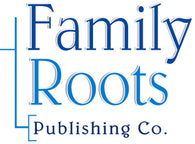
American Migrations 1765-1799: The lives, times, and families of colonial Americans who remained loyal to the British Crown before, during and after the Revolutionary War, as related in their own words and through their correspondence
American Migrations 1765-1799: The lives, times, and families of colonial Americans who remained loyal to the British Crown before, during and after the Revolutionary War, as related in their own words and through their correspondence; By Peter Wilson Coldham; Hardcover ; 948pp; Published: 2000; ISBN: 9780806316185; Item # GPC1122D.
Emigration from England to the American Colonies, from the time of the first settlement in Virginia until the Revolutionary War, has become a highly specialized subject on both sides of the Atlantic, and within that narrow field no one has uncovered more information and provided the researcher with more source material than Peter Wilson Coldham, who has compiled twenty-five books on the subject of English emigration to the American Colonies.
Every major archival source in England has been examined over the past forty years for evidence of emigrants and their families, all except one--Loyalists' claims submitted to the American Claims Commission between 1765 and 1799 for compensation for loss of land and property as a result of action taken against Loyalists before, during, and after the Revolutionary War. The last remaining archive to yield up its contents has proved the most difficult and time-consuming and yet probably the most productive of evidence. This major collection, the papers and volumes recording American Loyalist Claims--originally housed at Somerset House in London's Strand, then later transferred to the Public Record Office--was first examined by Mr. Coldham in 1980 when he published abstracts of about a quarter of the cases on record (National Genealogical Society Special Publications, No. 44). The Claims Commission examined claimants and witnesses and amassed a mountain of documentary materials which included applications, correspondence, depositions, affidavits, and legal transcripts which now form record class AO 13 (providing the raw material for most of the information in this book) and AO 12 (comprising 146 bound volumes which summarize the documentation already received).
In this book, cases are grouped together as far as practicable according to the name and normal residence of the person in whose right each claim was rendered. This has the benefit of grouping together under the name of a sole original landowner the applications of many descendants who may have submitted claims under different names. All 5,800 individual claims--the entire contents of the papers of the Claims Commission that form record classes AO 12 and AO 13 at the Public Record Office--are abstracted in this new and comprehensive publication.
The importance of this collection lies in the fact that the papers cover a period in colonial history that is particularly difficult for genealogical research. The introduction of the Stamp Act of 1765 ushered in the most turbulent period yet experienced on the American mainland, culminating in the savage conflicts of the Revolutionary War. Not only families but sometimes the populations of whole towns, both Loyalists and Patriots, were uprooted and dispersed, some too far distant lands, and records of all kinds were abandoned or destroyed. The personal journals, correspondence, and recollections of those who lived through these times therefore acquire a special significance.
Of the 15,000 individuals recorded in this work, some three-quarters took up residence outside the United States after 1783--hence the title of the work--but the remainder, including many who had been classed as Loyalists, became honorable citizens of the new Republic.
